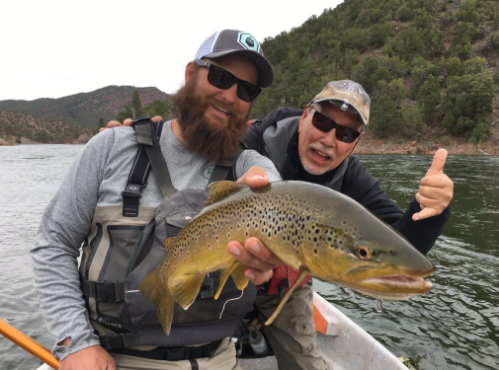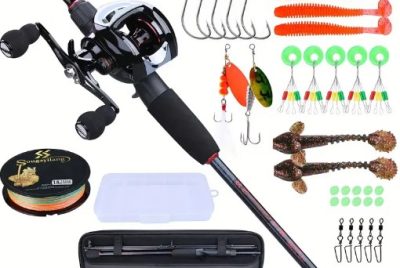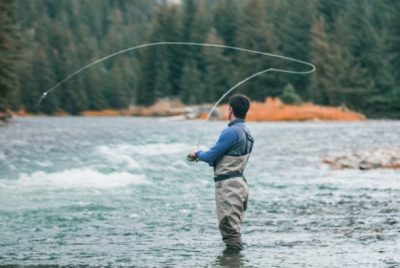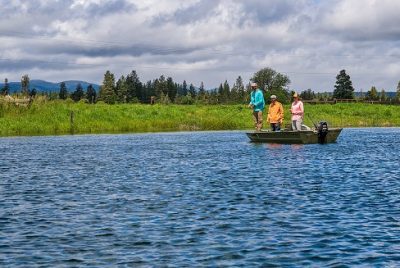Western Rivers Fly Fishing
Introduction
Definition of Western Rivers Fly Fishing
Western Rivers Fly Fishing isn’t just a sport; it’s a captivating dance with nature. Join me in exploring the nuances, joys, and challenges of this exhilarating pursuit.
My Passion for the Sport

As an ardent fly fishing enthusiast, the enchantment of Western Rivers has become a deeply ingrained part of my life. In this article, I’ll share insights, tips, and personal anecdotes that make this form of fly fishing an art and a lifestyle.
Choosing the Right Gear
Fly Rods and Reels
Selecting the right fly rod and reel is akin to choosing a wand for a magician. The weight, length, and action of the rod must harmonize with the rhythm of the river, ensuring a seamless connection between angler and fish.
Ideal Flies for Western Rivers
The diversity of insect life on Western Rivers demands a well-curated selection of flies. From stoneflies to caddis, understanding the local hatch and choosing the right patterns is crucial for success.
Understanding Western Rivers
Characteristics of Western Rivers

Western Rivers are characterized by their fast flows, rugged terrains, and breathtaking landscapes. Grasping these distinctive features sets the stage for an unforgettable fly fishing experience.
Importance of River Knowledge
Knowing the specific quirks of a river—its bends, riffles, and pools—transforms a fishing trip from a guessing game into a strategic pursuit. The more intimately you know the river, the more likely you are to find success.
Best Locations for Fly Fishing
Scenic Beauty of Western Rivers
The beauty of Western Rivers lies not just in the fish they harbor but in the picturesque surroundings. From the Rocky Mountains to the Sierra Nevada, each river offers a visual feast for the angler’s soul.
Finding the Perfect Fishing Spots
Identifying the sweet spots where trout gather requires a keen eye for river dynamics. Undercut banks, boulder gardens, and quiet eddies are often the stage for the most thrilling catches.
Techniques for Successful Fly Fishing
Nymphing in Fast Currents

Navigating the swift currents of Western Rivers demands proficiency in nymphing. The art of presenting subsurface imitations in turbulent waters is a skill that can turn a challenging day into a triumphant one.
Dry Fly Fishing in Calmer Waters
When the rivers calm down, dry fly fishing takes center stage. The delicate presentation of a dry fly to rising trout is a dance of precision and anticipation, creating an exquisite fusion of angler and nature.
Reading River Conditions
Interpreting Water Flow and Depth
Understanding the nuances of water flow and depth is like deciphering the river’s language. It guides you to the likely hiding spots of trout and enhances your ability to present flies effectively.
Adapting to Seasonal Changes
Western Rivers undergo seasonal transformations, influencing the behavior of both fish and insects. Adapting your approach to these changes ensures you’re always one step ahead in the angling game.
Challenges and Strategies
Dealing with Windy Conditions

Western landscapes often come with unpredictable winds. Overcoming windy conditions involves tweaking casting techniques and staying patient, waiting for the opportune moments.
Approaching Spooky Trout
Trout in clear Western Rivers can be discerning and easily spooked. Approaching them with stealth and using light tippets are strategies to outsmart these wary fish.
Conservation Practices
Importance of Responsible Fishing
Responsible fishing isn’t just a moral obligation; it ensures the sustainability of Western Rivers’ ecosystems. Adhering to catch-and-release practices and minimizing environmental impact are crucial.
Supporting River Conservation Efforts
Contributing to river conservation organizations and participating in clean-up initiatives is a tangible way to give back to the rivers that provide us with endless joy.
Benefits of Western Rivers Fly Fishing
A Connection with Nature

Fly fishing on Western Rivers isn’t just about catching fish; it’s about immersing yourself in the natural symphony of rushing water, rustling leaves, and the occasional eagle’s cry.
Stress Relief and Mental Well-being
The therapeutic benefits of fly fishing extend beyond physical health. The calming effect of casting on the water and the thrill of a strike contribute to mental well-being.
Favorite Fly Fishing Memories
Personal Experiences on Western Rivers
From the quiet solitude of dawn on the river to the adrenaline rush of landing a trophy trout, I share some of my most cherished moments in the world of Western Rivers fly fishing.
Special Catches and Unforgettable Moments
Every angler has that one catch etched in their memory. I recount mine, celebrating the triumphs and the lessons learned from each unique experience.
Community Engagement
Joining Fly Fishing Clubs

Becoming part of fly fishing clubs creates a network of like-minded individuals. Exchanging tips, stories, and even organizing group trips adds an extra layer of enjoyment to the sport.
Participating in River Clean-up Events
Taking an active role in preserving the health of Western Rivers, participating in clean-up events fosters a sense of responsibility and community.
Sharing Tips and Insights
Social Media Communities
Joining online communities dedicated to fly fishing enables the sharing of tips, insights, and the joy of the sport. Learning from fellow enthusiasts broadens the horizons of your fly fishing journey.
Learning from Fellow Enthusiasts
Acknowledging that fly fishing is a perpetual learning process, I share the joy of learning from fellow enthusiasts. Their tips and advice have enriched my experience and fueled my passion.
Conclusion

Embarking on a journey through Western Rivers with a fly rod in hand is not just a hobby; it’s a profound connection with nature, a journey of self-discovery, and a celebration of the wild beauty that surrounds us. As you delve into the world of Western Rivers fly fishing, may your lines be tight, your casts be true, and your memories be as rich as the waters you explore.
FAQs
1. What is the best time of year for fly fishing on Western Rivers?
Each season offers unique opportunities, but spring and fall are often favored for their mild weather and active fish.
2. How can I improve my nymphing skills in fast currents?
Practice is key. Focus on reading water, understanding drifts, and refining your nymphing techniques through regular, targeted practice.
3. Are there specific flies recommended for dry fly fishing in Western Rivers?
Local hatch patterns vary, but classic dry flies like Adams, Elk Hair Caddis, and Royal Wulff are often effective on Western Rivers.
4. What conservation practices can I adopt as a fly angler?
Practice catch-and-release, minimize your environmental impact, and actively support river conservation organizations to contribute to the health of Western Rivers.
5. How can I join a fly fishing club and connect with other enthusiasts?
Explore local clubs, attend events, and engage with online communities. Connecting with fellow enthusiasts provides a wealth of knowledge and camaraderie.




